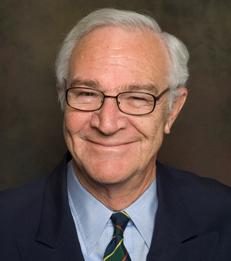Opinion
Deutsche Bank's Strategy2020 Lacks Vision
—


The unspoken alternative to this latest of Deutsche Bank’s strategic announcements, is to have spun off the investment bank altogether into a separate company.
By Roy C. Smith and Brad Hintz
What Deutsche Bank needed, after admitting this week that Strategy 2015+, its five-year remake, had failed to hit crucial targets, was the nerve to do something radical. Instead it spelt out “Strategy 2020” – which looked sadly similar to what most of the competition is planning to do.
On Monday’s investor call, Deutsche Bank’s Co-CEO Anshu Jain explained that “Strategy 2015+,” the most recent remake of the firm, had not met all of its targets, but it did meet some. It achieved its >10% Basel III core tier 1 ratio, and profitability, excluding litigation, was improved by the downsizing of the capital market business. And its plan to spin off Postbank made sense because the ever-changing EU regulatory environment, which has constrained the ability of Deutsche to use retail deposits for institutional funding, doomed the economics of the earlier €6 billion acquisition.
But the bank has fallen very far short of its 12% return on equity target. And management has acknowledged that maintaining “optionality in our business model” (i.e., the capability to deliver a broad range of capital markets and banking products across all major markets) has proved to be a costly mistake for the bank.
Read full article as published in Financial News
___
Roy C. Smith is the Kenneth G. Langone Professor of Entrepreneurship and Finance and a professor of Management Practice. Brad Hintz is an adjunct professor of Finance.
On Monday’s investor call, Deutsche Bank’s Co-CEO Anshu Jain explained that “Strategy 2015+,” the most recent remake of the firm, had not met all of its targets, but it did meet some. It achieved its >10% Basel III core tier 1 ratio, and profitability, excluding litigation, was improved by the downsizing of the capital market business. And its plan to spin off Postbank made sense because the ever-changing EU regulatory environment, which has constrained the ability of Deutsche to use retail deposits for institutional funding, doomed the economics of the earlier €6 billion acquisition.
But the bank has fallen very far short of its 12% return on equity target. And management has acknowledged that maintaining “optionality in our business model” (i.e., the capability to deliver a broad range of capital markets and banking products across all major markets) has proved to be a costly mistake for the bank.
Read full article as published in Financial News
___
Roy C. Smith is the Kenneth G. Langone Professor of Entrepreneurship and Finance and a professor of Management Practice. Brad Hintz is an adjunct professor of Finance.
